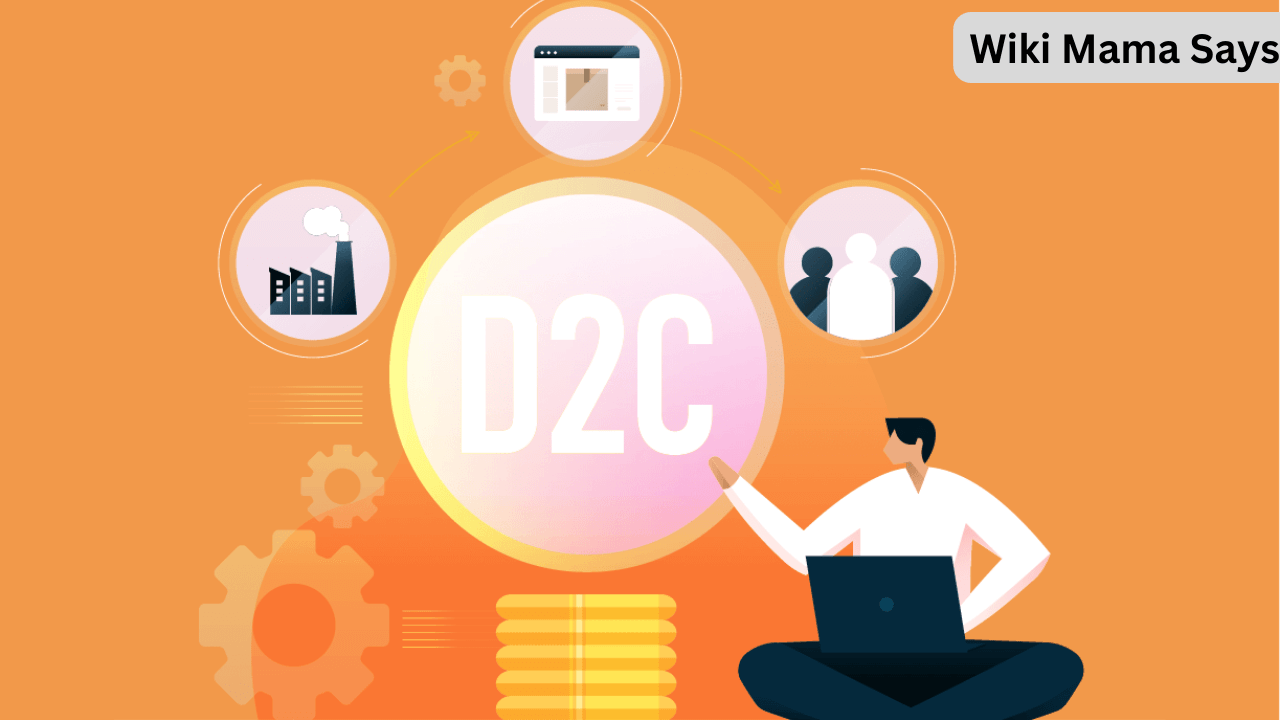In the ever-evolving landscape of e-commerce, direct-to-consumer (D2C) marketing has emerged as a powerful force. D2C brands bypass traditional retail channels, selling directly to consumers through their own online stores and other digital platforms. This approach offers greater control over brand messaging, customer experience, and data collection, allowing D2C marketing to create a unique and personalized customer journey.
Why Own the Customer Journey?
The traditional retail model often creates a disconnect between brands and consumers. Retailers act as intermediaries, potentially influencing brand perception and limiting access to valuable customer data. D2C marketing empowers brands to take ownership of the entire customer journey, from initial brand awareness to purchase and post-purchase engagement. Wikimamasays.com is all set to help you with any problems. This presents several advantages:
- Building Stronger Brand Relationships: Direct communication eliminates the middleman, allowing brands to build stronger, more personal relationships with their customers.
- Data-Driven Insights: Direct-to-consumer marketing provides access to a wealth of customer data, including purchase history, preferences, and online behavior. This data allows for targeted marketing campaigns and personalized experiences.
- Enhanced Brand Control: Brands have complete control over their brand narrative and messaging. They can create a consistent brand experience across all touchpoints, fostering brand loyalty and trust.
- Increased Customer Satisfaction: By directly interacting with customers, D2C brands can gather valuable feedback and tailor their products and services to better meet customer needs, ultimately leading to increased customer satisfaction.
- Agility & Innovation: D2C companies can react quickly to market trends and customer feedback. They can adapt their offerings and marketing strategies faster than traditional brands reliant on retail partnerships.
Read more about Integrated Marketing: Bridging the Gap Between Channels
Crafting a Winning D2C Marketing Strategy
So, how do you craft a winning direct-to-consumer marketing strategy that empowers you to own the customer journey? Here are some key elements:
- Define Your Ideal Customer: Understanding your target audience is critical. Create detailed buyer personas that outline their demographics, interests, pain points, and online behavior. This guides your marketing efforts towards the most receptive audience.
- Develop a Compelling Brand Story: Every brand has a story to tell. D2C marketing allows you to craft a captivating brand story that resonates with your target audience. This story should communicate your brand values, mission, and the unique value proposition you offer.
- Content Marketing is King: Create high-quality content that educates, entertains, and engages your audience. This could include blog posts, infographics, videos, and social media content. Direct-to-consumer marketing content should focus on addressing customer pain points and showcasing your brand expertise.
- Embrace the Power of Storytelling: People connect with stories. D2C marketing allows you to leverage storytelling to showcase your brand values, product benefits, and customer testimonials. Utilize video marketing and user-generated content (UGC) to enhance your storytelling and foster brand authenticity.
- Omnichannel Marketing: Consumers navigate various online platforms. D2C marketing requires an omnichannel approach, ensuring seamless brand interaction across platforms like social media, email marketing, search engine marketing (SEM), and your website.
Building a Direct-to-Consumer Marketing Dream Team
While owning the customer journey offers significant advantages, it also requires a diverse skillset within your marketing team. Here are some key roles to consider:
- Content Marketing Specialists: These individuals create high-quality content that educates, entertains, and engages your target audience.
- Social Media Savvy Professionals: Social media is a crucial platform for D2C brands. Direct-to-consumer marketing requires a team adept at managing social media channels, fostering community engagement, and leveraging social media advertising.
- Data Analysts: Data is the lifeblood of successful D2C marketing. Data analysts are instrumental in collecting, analyzing, and interpreting customer data to inform marketing strategies and optimize campaign performance.
- Ecommerce & Conversion Rate Optimization (CRO) Experts: A smooth and user-friendly online store is vital for Direct-to-consumer marketing. E-commerce experts ensure a seamless user experience, while CRO specialists focus on optimizing your website to maximize conversions.
Read more about Creative Billboard Advertising: Capturing Attention
Advanced Direct-to-Consumer Marketing Strategies
As your D2C marketing efforts mature, consider these advanced strategies for further optimization:
- Personalization: Leverage customer data to personalize your marketing messages and product recommendations. D2C marketing allows for a high degree of personalization, tailoring content, offers, and email campaigns to individual customer needs and preferences.
- Influencer Marketing: Partner with relevant influencers in your niche to promote your brand and products. Influencer marketing can significantly boost brand awareness and drive targeted traffic to your online store.
Customer Loyalty Programs: Reward loyal customers with exclusive discounts, early access to new products, and personalized experiences. D2C marketing loyalty programs foster brand advocacy and encourage repeat purchases. - Subscription Services: Consider offering subscription models for your products, providing convenience and recurring revenue for your brand. Direct-to-consumer marketing subscriptions can be a powerful tool for customer retention and predictable revenue streams.
- Embrace New Technologies: The digital landscape constantly evolves. Stay updated on the latest marketing technologies, such as artificial intelligence (AI) and augmented reality (AR), exploring how they can enhance your D2C marketing strategy.
Conclusion
The world of e-commerce offers exciting opportunities for D2C brands. By taking ownership of the customer journey, you can build deeper relationships with your audience, personalize the customer experience, and unlock sustainable growth.
Direct-to-consumer marketing empowers you to craft a compelling brand story, deliver exceptional customer service, and leverage data to optimize your marketing efforts. By implementing the strategies outlined in this guide and fostering a culture of continuous learning and adaptation, you can position your D2C brand for long-term success in the ever-evolving digital landscape.





